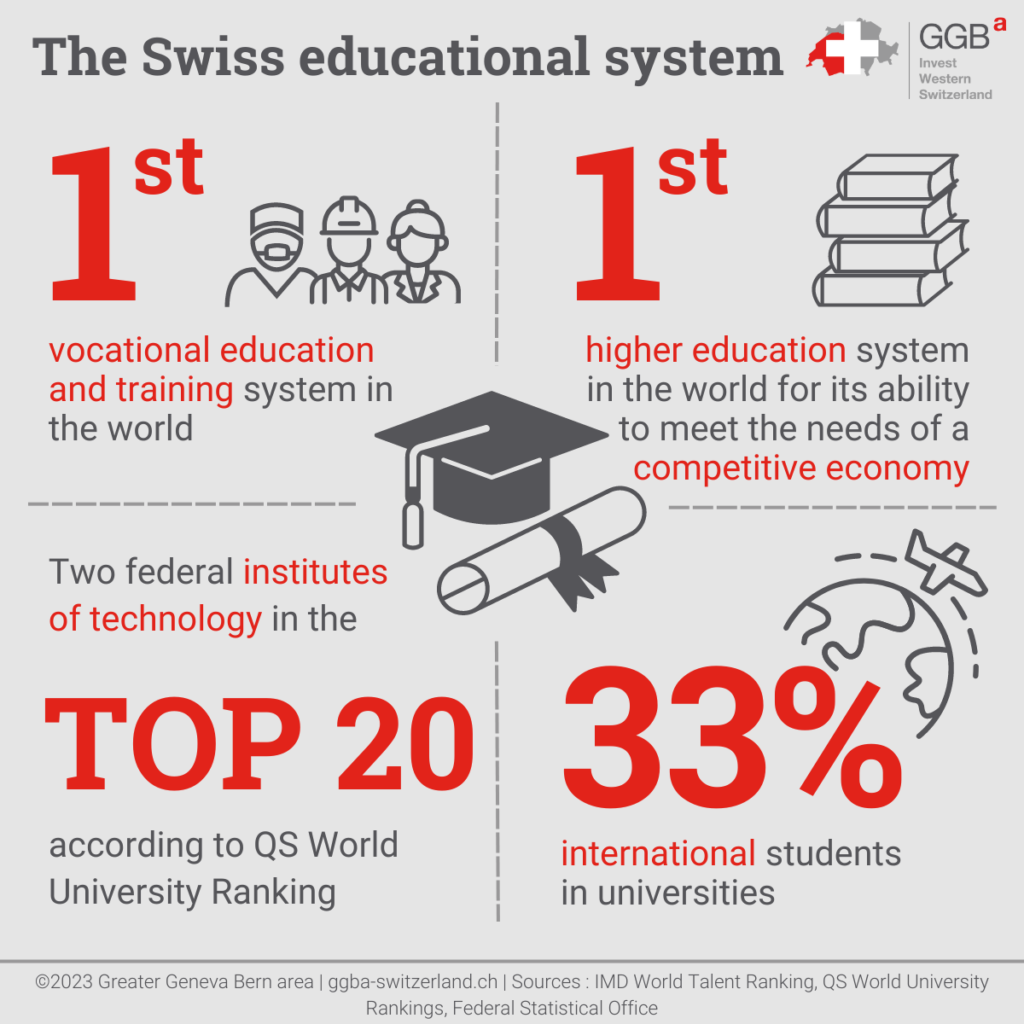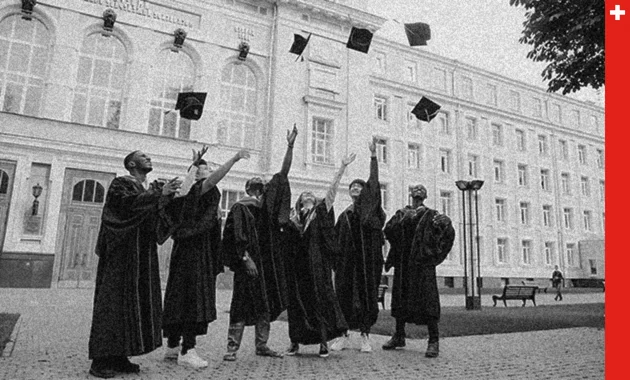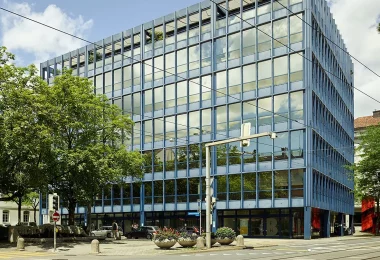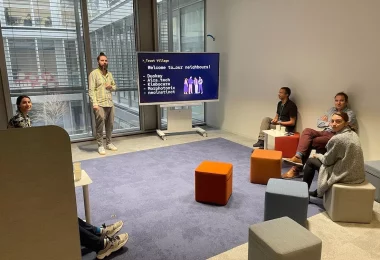One of the particularities of Switzerland is its dual system of education : in addition to the traditional education provided in high schools (also called "gymnase") and universities, in-company apprenticeships are offered for many industrial and craft trades as well as for many professions in the service sector.
Compulsory education
In Switzerland, compulsory education lasts for nine years. Children begin their educational journey at the age of five or six by joining kindergarten, then continue in elementary school, which lasts between four and six years, before reaching secondary level I. At the secondary level, students are divided into two tracks according to their skills:
- the general track, which aims to acquire additional professional skills in addition to compulsory courses such as mathematics and modern languages;
- the pre-high school track, for students wishing to continue their studies.
As the cantons are responsible for the educational structures within their territory, these names may vary from one canton to another.
After completing their nine years of compulsory schooling, students can choose to begin vocational training (called an “apprenticeship”) or join a school preparing for the “maturité” (called a “gymnase” or “high school”), which is required for university entrance.
In Switzerland, only 5% of students attend private schools, as parents highly regard public schools’ quality of education. A study conducted by the IMD World Competitiveness Center reveals that Switzerland has the second highest quality education system in the world, just behind Finland, as it essentially meets the country’s economic needs.
International private schools
The Swiss education system also offers the possibility of enrolling in private schools. There are currently about 260 private schools with about 100,000 students offering courses in one of the three national languages (German, French, and Italian) as well as in English and some other languages. International schools are particularly important for employees of foreign companies who are temporarily living in Switzerland. The children of expatriates are educated in their native language or receive an international education that prepares them for diplomas recognized in their country of origin, such as the “Abitur”, the baccalaureate, or the entrance certificate to an American university. Suitable schools are available in all regions and major cities of the country. Tuition fees are moderate by international standards.
Vocational education and training
The consistently low unemployment rate in the Swiss labor market is due not only to a stable national economy but also to the quality of the Swiss vocational education and training system, which is considered the best in the world.
Vocational education and training begins at the end of compulsory schooling. More than three-quarters of the young people who do an apprenticeship receive a school education at the same time. This apprenticeship, which lasts three to four years, includes a practical part, work in a company, and a theoretical part with courses related to the chosen branch.
The dual system of vocational education and training is a real asset for the Swiss economy. It allows for the training of well-prepared practitioners who are ready to be hired. As a result, the unemployment rate of young people in Switzerland is significantly lower than the average of European countries.
Universities
Switzerland has a strong university system, with ten cantonal universities offering courses in German, French, Italian, and English. In addition, the country has two renowned federal institutes of technology, the EPFL in Lausanne and the ETHZ in Zurich. More than 168,000 students, about 33% of whom are foreign, study at these twelve universities. The high proportion of foreign professors, which amounts to about 50%, is evidence of the international outlook of Swiss higher education.
The range of subjects taught at Swiss universities is very broad and there are no specific restrictions on admission. However, foreign students must meet language requirements and pass an entrance exam depending on the university. In addition, university tuition fees are relatively low, even for foreign students.
Switzerland is also committed to the Bologna reform launched in 1999, which has made it possible to build a European university area. The constituent elements of the Bologna reform are:
- the three-cycle system of Bachelor, Master, and Doctorate degrees
- the ECTS credit system
- cooperation in quality assessment and the introduction of national qualifications frameworks.
In addition, more and more study cycles are offered partially or entirely in English, especially in Master’s programs. Switzerland also participates in international mobility programs, such as ISEP. Thanks to this, semesters spent studying abroad are recognized by Swiss universities.
Swiss universities are highly specialized in research and teaching, which gives them international prestige in many fields. The two Federal Institutes of Technology in Zurich (ETHZ) and Lausanne (EPFL) collaborate with the international research community and conduct research at the highest level. Swiss universities also attract world-renowned scientists and are often ranked among the top 100 institutions in European and world rankings.
Universities of Applied Sciences
Universities of Applied Sciences (UAS) provide practice-oriented training at the university level (Bachelor’s and Master’s degrees) to people who, in general, have a professional baccalaureate and already have some practical experience in their profession. In addition to their regular teaching, UAS also offer advanced courses to local companies and work in collaboration with private companies, especially SMEs, on research and development projects.
By being in constant contact with economic actors, UAS play a key role in regional knowledge and technology transfer. With strong competencies in teaching, research, development, and services, they are practice-oriented, market-oriented, and customer-oriented. As research institutes, they are supported by the Swiss Innovation Promotion Agency Innosuisse and cooperate closely with universities and technical colleges.
Continuing education
Continuing education is a tradition in Switzerland. Public providers, such as universities or universities of applied sciences, offer courses on specialized topics in addition to higher education studies, which can also be attended by non-graduates. It is also possible to enroll as an auditor. The universities are subsidized by the federal government and are open to all interested parties. The range of courses offered by private providers is also very varied. They range from language courses to management training and marketing.
Executive MBA Programs (EMBA)
Executive MBA (EMBA) programs are advanced training programs for executives who already have extensive experience in business management. EMBA programs are generally offered in modules and are taken in parallel with professional activities. In addition to courses in Switzerland, they usually include stays abroad. IMD in Lausanne offers an Executive MBA program that is considered one of the best in the world.

In a nutshell: Swiss universities are consistently ranked among the best in the world. They offer quality education in a variety of fields, with innovative research and teaching programs that are relevant to the needs of the labor market. Professional training is also highly valued, allowing young people to acquire practical skills and specialized knowledge that prepare them for the job market. Thanks to these different aspects, Switzerland has a highly qualified workforce.




